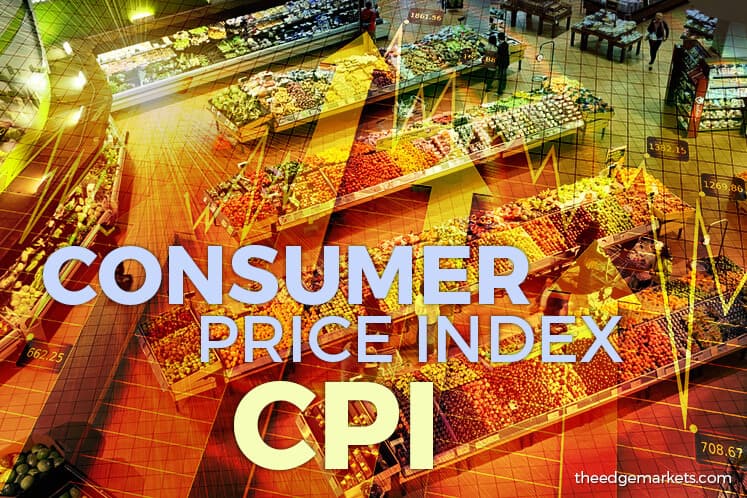
This article first appeared in The Edge Financial Daily on June 20, 2018
KUALA LUMPUR: Ahead of its release later today, economists expect the Consumer Price Index (CPI) reading for May to be higher on climbing fuel prices and increased food inflation for the fasting month and going into Hari Raya celebrations.
Headline inflation was 1.4% year-on-year in April, inching up from 1.3% in March, bringing the average for the first four months of the year to 1.7%.
Economists at Nomura expect the May reading to come in at 1.8%. However, it noted the rise was likely restrained by the return of fuel subsidies, which likely blunted inflation pressures in May despite high crude oil prices. Overall, Nomura said inflation is expected to come in at 1.3% in 2018, before accelerating to 1.5% in 2019, compared with 3.7% in 2017.
RAM Ratings Services Bhd has forecast May’s inflation at 1.9% primarily due to faster growth in retail fuel prices. It noted the 5.1% rise in retail fuel price during the month, compared to a 0.3% contraction in April, was mainly attributable to a low base effect.
“The average RON95 fuel price in May 2017 was significantly lower at RM2.09 per litre, down from April 2017’s RM2.21 per litre and it is expected to stay at this level from May 2018 amid the reinstatement of subsidies.
“As such, inflationary pressure from the retail fuel component is also anticipated to rise for June and July, as the low base effect from a year ago increases,” it said in a statement yesterday.
While the zero-rated goods and services tax (GST) is expected to reduce overall inflationary pressure, reintroducing the sales and services tax (SST) may to some extent offset the deflationary impact.
“We are withholding the impact of the SST’s implementation for now until more definite details are available; the full-year overall inflation is envisaged to average 1.6%,” RAM head of research Kristina Fong said.
UOB Malaysia economist Julia Goh also noted with zero-rated GST from June, preliminary projections suggest inflation could ease below 1% from August. “The extent of moderation will depend on the SST rate and the extent of businesses passing on savings to consumers,” added Goh.
Goh said she estimates May's CPI to be at 1.6%, slightly higher from that of April as food inflation ticks up, going into the fasting period due to higher demand for groceries and eating out.
Meanwhile, AmBank group chief economist and head of research Dr Anthony Dass said some degree of cost-push pressure is evident from a weaker ringgit against the US dollar in May as the local currency depreciated by 2% month-on-month to 3.964.
“With the current weakening ringgit trend, we foresee some level of inflationary pressure to kick in from the cost-side. However, the zero-rated GST added with fuel subsidy will act as an offsetting factor. Thus, we are of the view that inflationary pressure will remain contained in the near term,” said Dass.
Overall, Dass believes inflationary pressure will remain contained. He projected inflation for the full year at around 2% to 2.5%.
The May number will be the last headline inflation reading where prices still included the 6% consumption tax. Meanwhile, a Reuters poll of nine economists shows inflation accelerating to 1.8% in May, in line with Bloomberg’s consensus forecast of 1.8%.